Easy Building Vocabulary worksheets activities for Ages 6-9
5 filtered results
-
From - To
Discover our engaging "Easy Building Vocabulary" worksheets designed specifically for children ages 6-9. These fun and interactive activities promote language development and enhance vocabulary skills through exciting games and challenges. Our carefully crafted worksheets encourage creative thinking and help young learners associate words with meanings effectively. Perfect for home or classroom use, these resources are ideal for reinforcing vocabulary acquisition in a playful way. Explore a blend of exercises, including word matching, fill-in-the-blanks, and picture associations, tailored to captivate young minds. Elevate your child’s learning experience and watch them build a strong vocabulary foundation with our easy-to-use worksheets!
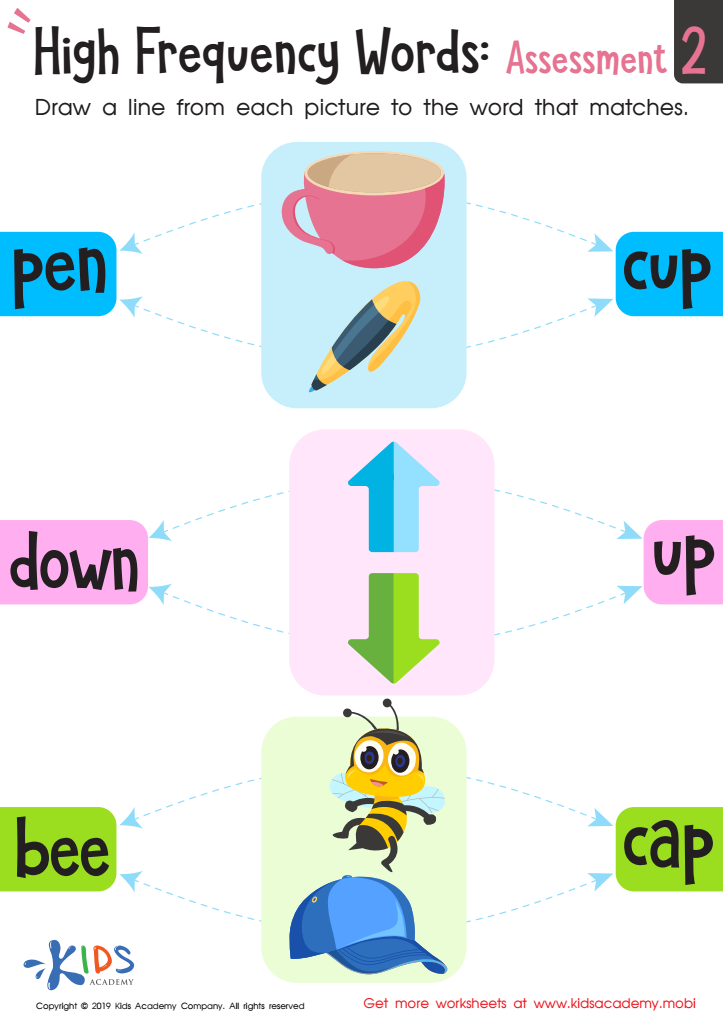

High Frequency Words: Assessment 2 Worksheet
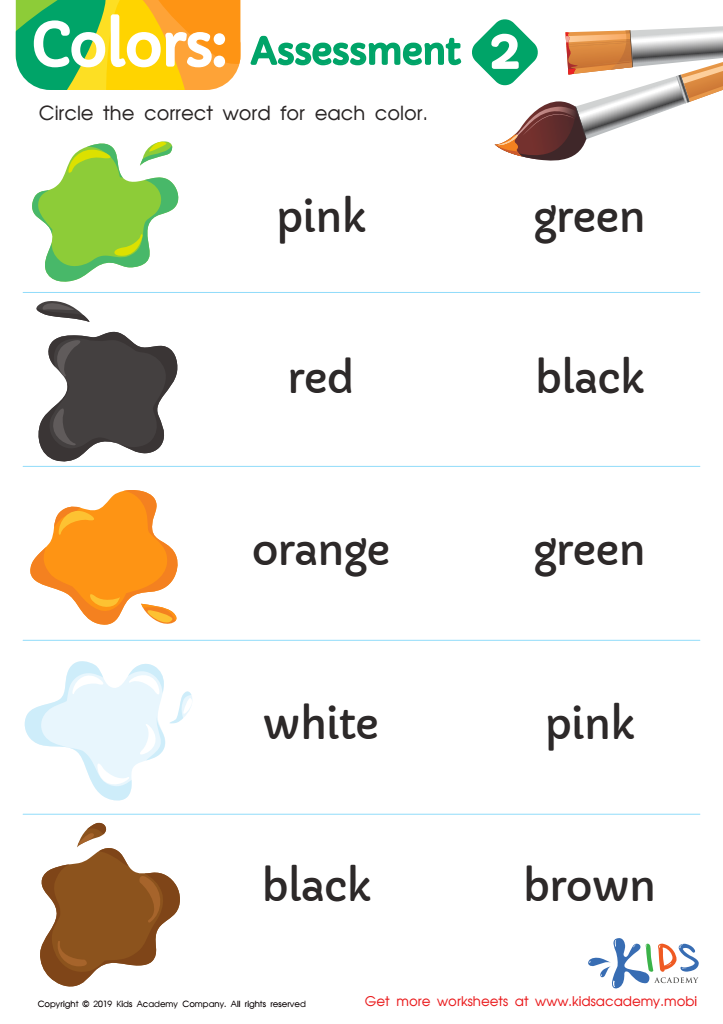

Colors: Assessment 2 Worksheet
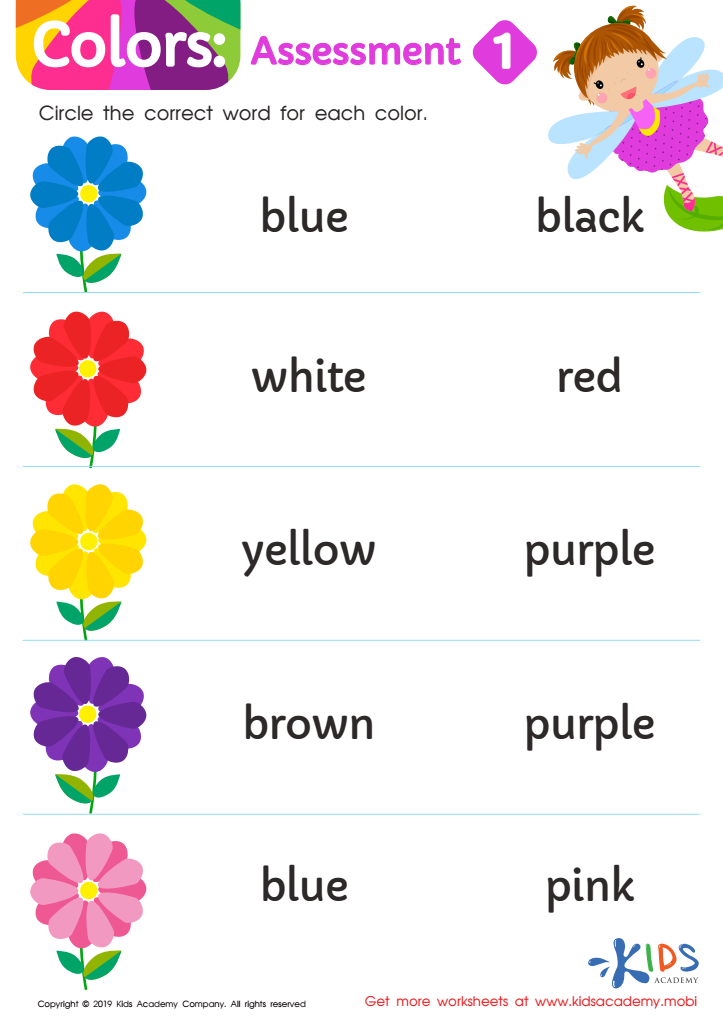

Colors: Assessment 1 Worksheet
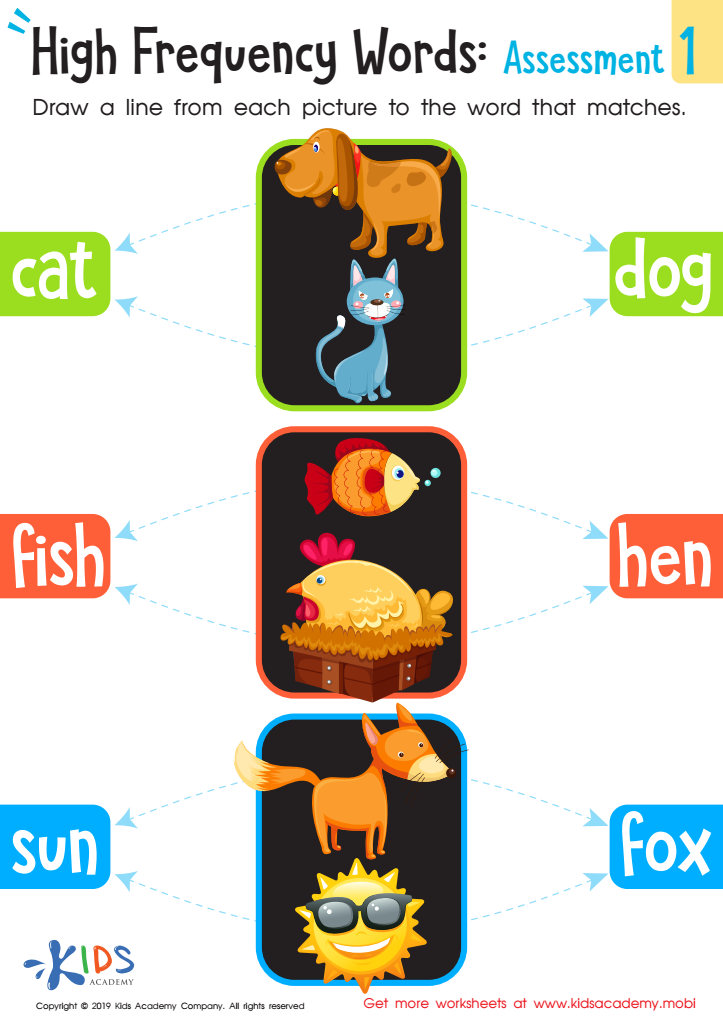

High Frequency Words: Assessment 1 Worksheet
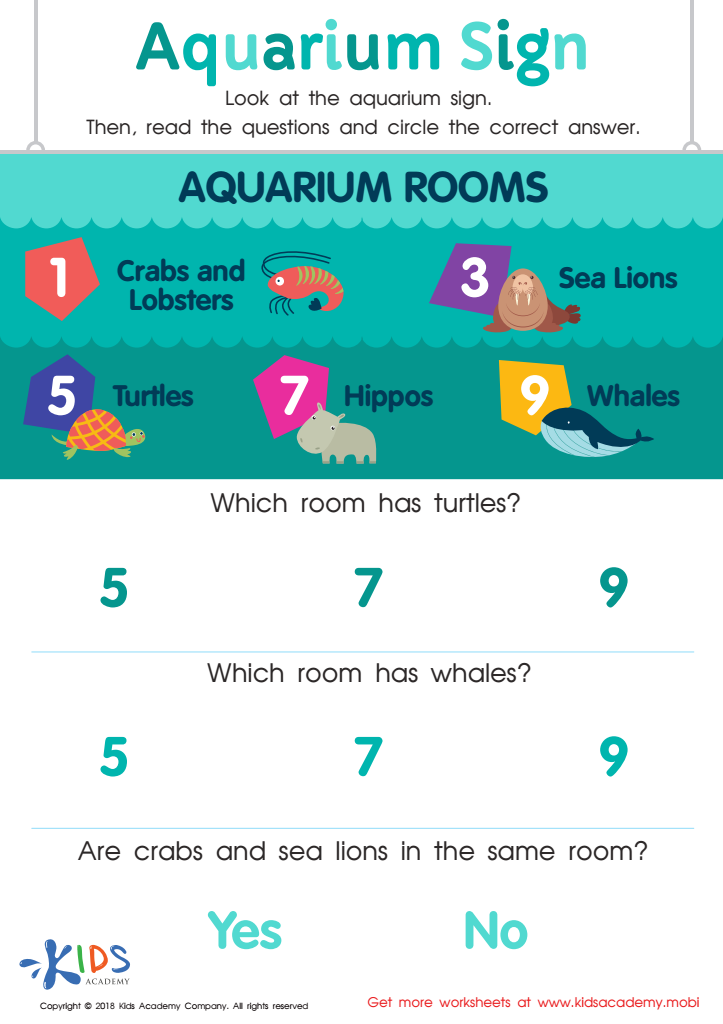

Assessment: Aquarium Sign Worksheet
Easy Building Vocabulary activities for children aged 6-9 are essential for their linguistic and cognitive development. At this vital stage in their growth, children are increasingly exposed to diverse vocabulary and language structures, which contributes to their reading, writing, and overall communication skills. Engaging in fun, interactive vocabulary activities helps to reinforce language acquisition, boosts comprehension, and lays the groundwork for successful literacy skills.
Furthermore, these activities promote critical thinking and creativity, as children explore various words and their meanings in context. They also encourage collaboration and social skills when done in groups, enabling children to learn from each other. For parents and teachers, fostering a robust vocabulary in young learners not only enhances academic performance but also builds a foundation for lifelong learning and communication.
Moreover, a strong vocabulary equips children with the ability to express themselves clearly and confidently, an essential skill for personal and professional success in the future. By prioritizing and implementing Easy Building Vocabulary activities, parents and teachers ensure that children are engaged and motivated while developing the necessary tools for effective communication and academic achievement. Therefore, nurturing vocabulary at a young age is a pivotal investment in a child's educational journey.
 Assign to My Students
Assign to My Students





















